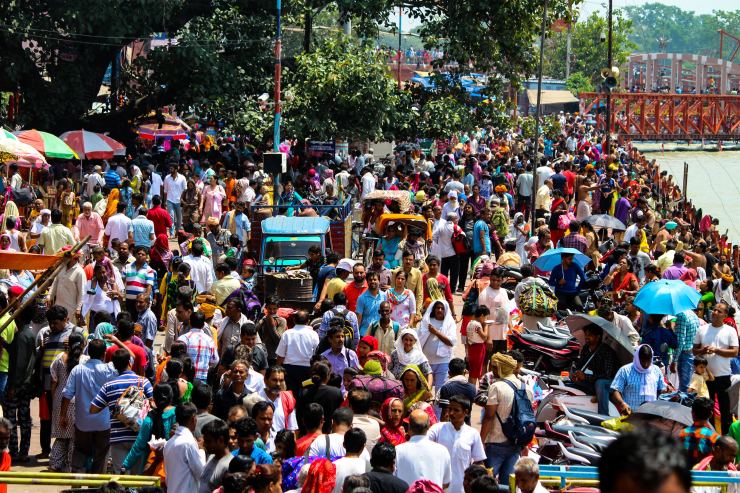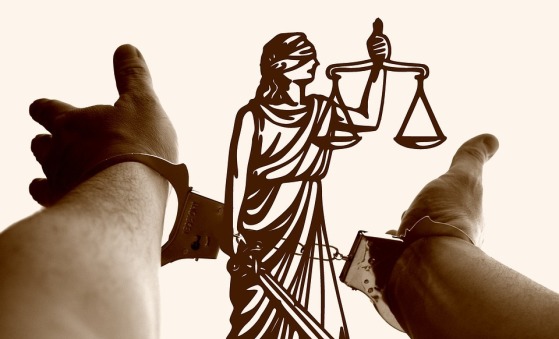
Last month, a major rumour that gained traction was a potential name change of India to Bharat. However, despite some initial anticipation, the news has now lost momentum as no official announcements have been made. The origins of the recent discussion can be traced back to an invitation sent out by New Delhi for the G-20 summit, where they replaced the conventional title 'President of India' with 'President of Bharat.' However, this is not the first time such a debate has gained prominence. In recent times, the Supreme Court of India has rejected the plea for a name change at least twice, in 2016 and 2020.
Although the debate seems settled for the time being, one shouldn't be misled into thinking that similar demands will not be made in the future. The 'Bharat vs. India' debate is a growing sentiment among many Indians and is further fuelled by right-wing mouthpieces and intellectuals. It seems that for now, the hype has died down but given the current political scenario this debate is not going to end here. Given this fact, it is important to analyse the heart of the problem. As mentioned, the debate over the name is hardly a recent controversy. It dates back to the drafting of the Indian Constitution when Dr. B.R. Ambedkar, the chairman of the drafting committee, proposed an amendment to draft Article 1, stating, 'India, that is Bharat, shall be a union of states.' A dissent immediately arose, opposing the idea of equivocating India and Bharat. However, eventually, the amendment survived as the Constituent Assembly voted in favour. Now that it is inscribed in the constitution of independent India, one might argue that such a discussion is irrelevant. ‘India is Bharat’ and ‘Bharat is India’ - unequivocally. Nevertheless, the issue at hand is not merely one that is concerned with a name but rather it is a fundamental problem of Identity.
Letting go of Colonial Past
As India seeks to unburden itself of its dark colonial baggage ad seeks to envision a new national identity–one that is empowering and gleaming with references to a glorious past. To champion such national identity, one needs to form a coherent meta-narrative. Therefore, some factions of the nation hope to revive an ultra-national spirit amongst its fellow citizens and seek to create a version of India’s past that fits with this narrative. Heritage, culture, religious beliefs, and political leanings are bead into a single thread of Hindutva. The right-wing vision to transform India into a ‘Hindu Rashtra’ is not a secret and the name ‘Bharat’ manifests this vision.
In the past, Hindu nationalists renamed the current city of Mumbai from its colonial name 'Bombay,' which means 'good bay.' Mumbai is named after Mumbadevi, a local deity of the city's fisherfolks. Over the years, we have seen many such name changes: Madras became Chennai, Bangalore became Bengaluru. Not only are they keen on erasing memories of the British Raj, but they are also intent on eradicating any Islamic references, as seen in the recent name change of Allahabad to Prayagraj. Hence it is evident that the right-wings vision for the future ensues everything that remotely references any foreign influence.
The ‘Bharat’ Vision
The name Bharat is of Sanskrit origin, unlike its Western and colonial substitute, 'India.' Moreover, it finds references in the Hindu Puranas. Although the idea of a nation-state is fairly recent, the right-wing emphatically advocates that the whole of the Indian subcontinent was a single unified nation centuries ago before foreign powers invaded this prosperous land. A systematic revision of history is underway; the national curriculum has been amended multiple times in the recent past to saffronise India's past—demonising the Mughals, glorifying Hindu rulers, and softening the stance of right-wing militants, such as Nathuram Godse, who assassinated Mahatma Gandhi. This reflects the prevailing intellectual climate in today's India. The influence of this spirit is also evident in the fields of entertainment, particularly cinema, and to some extent, sports.
One must realise that the current debate is strongly rooted in right-wing ideology and its vision to transform India into a 'Hindu Rashtra.' Bharat is, therefore, not just a name; in this sense, it is a manifestation of Hindutva aspirations. Let me emphasise here that the mere names Bharat or India are interchangeable in common usage; however, the systematic attempt to give Bharat a saffron colour is what is contentious.
The right-wing vision simply has two major problems. Firstly, the past that it tries to glorify is hazy; it is not based on a correct understanding of history. India is a tapestry of multiple independent histories, and this amalgamation gives it rich cultural and linguistic colours. Also, India has indeed contributed immensely to various fields such as mathematics, astronomy, and traditional medicine, to name a few. The Kerala School of Mathematics and Astronomy, which flourished in the 15th and 16th centuries AD, is one prime example. I could list various such contributions from different parts of modern India. However, the right-wing version of a glorious past is notoriously funny. Most would even assert that all of modern science and technology was stolen by the British from ancient Indian texts. Such outright disregard for scholarship has become common in the country.
Secondly, the future that it envisions subdues non-Indic religious traditions and therefore alienates Christians and Muslims. One of the most influential leaders of the Hindu right-wing, M.S. Golwalkar, writes in his work We, or Our Nationhood Defined - “The foreign races in Hindusthan must either adopt the Hindu culture and language, must learn to respect and hold in reverence Hindu religion, must entertain no idea but those of the glorification of the Hindu race and culture, i.e., of the Hindu nation and must lose their separate existence to merge in the Hindu race, or may stay in the country, wholly subordinated to the Hindu Nation, claiming nothing, deserving no privileges, far less any preferential treatment -not even citizen's rights.” In the search for this Hindutva identity, it fails to be inclusive. It alienates non-Indian religious traditions and belittles Indic religions such as Jainism, Buddhism, and Sikhism, treating them as subdomains of Hinduism.
What does it mean to be Indian?
During the recently concluded India Today Conclave, R. Jagannatha, the editorial director of the right-wing mouthpiece Sawarajya remarked 'Bharat' is our "natural rhythm [and] natural self. The remark is quite telling of the ever-growing tension of a major faction of the population who sees Bharat as a legitimate replacement for the name India. In Jagannatha’s own words, India is a geographical construct, but Bharath is our cultural identity. One might very well ask, 'What is this natural self?' Why make such a distinction? Why should there be a difference between our geographical construct and culture? If 'Bharat' is used as a synonym for India, then I do not see a problem, and it is in this same meaning that it is enshrined in the constitution. By now the reader might have realised the ‘Bharat vs India’ is not a mere debate of nomenclature and they exemplify two antithetical visions for the nation.
At the heart of the matter is the very question of 'Indianness' – what makes us Indian? Is it the brownness of our skin? Is it the language we speak, our culture, or our ethnicity? At least we can agree that we all look different depending on which part of the country we come from, and we could also agree that we speak completely different languages depending on our home state. Interestingly, some of these languages have existed for over a thousand years. The same goes for culture and ethnicity as well. All of these, along with many more factors, contribute to each of our identities, including our religious beliefs and practices.
Indianness has a personal dimension, an individual's shared connection to their land, language, and culture. The Idea of India is an amalgamation of such individual visions too and in this regard, it also encompasses an individual's past, a shared heritage with their ancestors. We live in a land where our forefathers lived and toiled for probably thousands of years. This vision is ingrained in the preamble of the Indian constitution and echoes through its pages. Hence, 'Indianness' weaves us together – the white-collar Indian, the rural Indian, the Adivasi Indian, the Muslim Indian, the Christian Indian, the Hindu Indian – into a beautiful bouquet. Unlike some of the Western democracies that have a shared national history and values which are recent, India in this regard is unique and different.
Bharat on the other hand, is a name that exemplifies the right-wing cause, it is in stark opposition to the idea of India. Instead of celebrating diversity, it attempts to conform everyone to one culture and those who oppose this idea are often branded as traitors. The southernmost state of India, Kerala, was primarily the Kingdom of Travancore (Thiruvithamkoor) from the early part of the 18th century to the mid-20th century. If I were to present the idea of Bharat or India to a person who resided here two hundred years ago, this would have been an alien concept to them. They probably wouldn't have recognized these names in the first place. Instead, they would have identified with their caste or perhaps with the Kingdom they were a part of. And India as a subcontinent was divided into smaller kingdoms with distinct histories and heritages.
The ‘Bharat vision’ fails to acknowledge the contributions made by Christianity to modern India, such as the Jesuit influence on the development of modern science, and the establishment of hundreds of mission hospitals, schools, educational institutions, and other humanitarian organisations by Christians. Likewise, think about the social and educational reforms brought about by various social reformers and missionaries. None of these significant contributions are recognized as part of the 'Bharat Identity.' This omission in our history is concerning because for them it distorts the saffron picture of our glorious past, moreover, recognising such contributions also patronises the colonisers.
The 'Bharat vision' fails to respect diversity; it fails to celebrate it; it hopes to forget it. This vision struggles to understand our complex past. It chooses to believe in an ancient, unified kingdom but fails to realise that the idea of the nation-state is a relatively recent one. India was never a unified kingdom; we never spoke a common language, and we never had a unified culture. Imposing the culture of central India on other parts is mere chauvinism. I refuse to buy into this vision; this is not the vision our founding fathers saw. In essence, their vision was much greater than a mere vision of a nation; they hoped for a better humanity. Borrowing Nobel Laureate Rabindranath Tagore’s phrase, 'I will not buy glass for the price of diamonds.' I refuse to buy this vision.
Some Concerns and the Future
The right wing's vision of India's past and future is contradictory to the very idea of 'Indianness.' Therefore, as an Indian, the 'Bharat' controversy disturbs me, as it represents a step closer to the realisation of this saffron vision. In the quest for India's new identity, will Christians and other minorities lose their identity? Will we be considered pariahs in our own homeland, a land where our ancestors have lived and died? Only the future will provide us with answers, but one thing is certain: these revisionist factions, in their search for India's lost soul in mythical remnants, will only lose its true soul.




